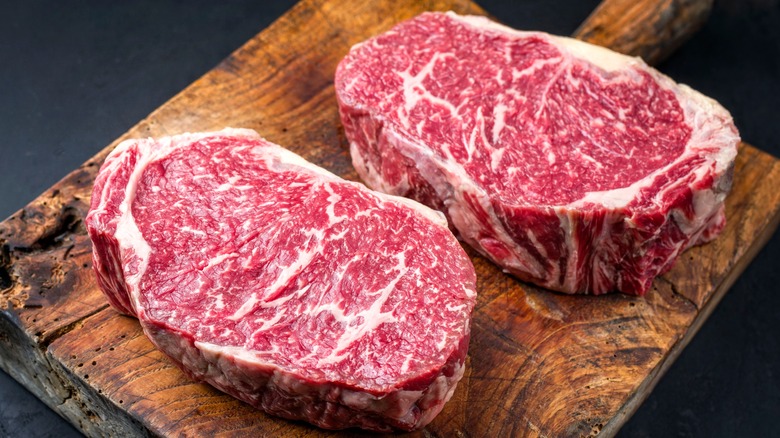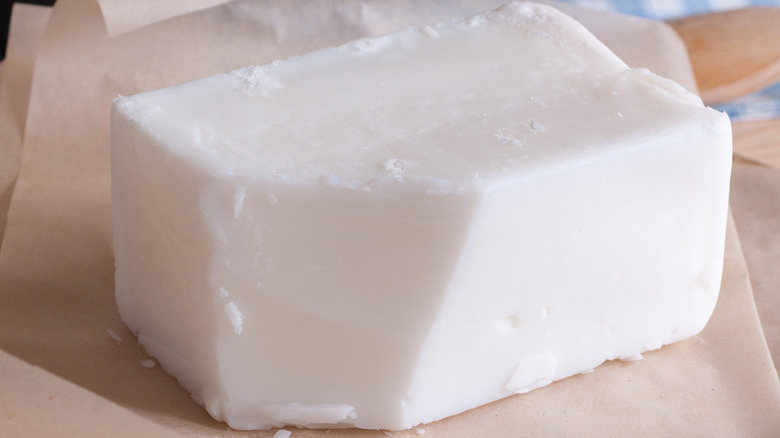What Makes Wagyu Beef Tallow Different From The Regular Beef Tallow?
There was once a time when saving cooking fat wasn't just a frugal hack but a patriotic duty. According to Farmers' Almanac, the U.S. government actively encouraged families to save their bacon grease during World War II. Butter had been rationed for the war effort, so families were expected to use bacon grease for cooking and baking. What they didn't use was expected to be turned into the government by way of local butchers. This grease was necessary for glycerin production, so saving it directly helped build the bombs necessary to win the war. Only after the fighting ceased and soldiers came home did other cooking fats become available again.
All this is to say that saving cooking fats, especially those derived from meat, is not nearly as common a practice as it once was. However, according to Practical Self Reliance, beef tallow is seeing something of a resurgence. This is because tallow is not only an excellent fat for cooking and baking but can also be used for making skin ointment and soap (via Pittsburgher Farm).
However, not all tallow is created equal. Just as there are differences in the quality of meat for various cattle breeds, so will there be variances in the quality of their fat. And tallow derived from wagyu beef is truly something special. It takes the best elements of tallow and dials them up with added nutrition through healthy fats.
The healthy side of beef fat
Wagyu beef is derived from specific breeds of Japanese cattle known for their cuts well-marbled with fat. According to BBC Good Food, this fat is partially the result of waiting to wean wagyu calves from their mother's milk for an incredible 600 days. The prolonged access to milk and a diet of nutrient-dense feed, including fresh grasses, hay, grains, fruits and vegetables, and even beer, give wagyu steaks their high levels of omega-3 and omega-6 fatty acids (via Farm Base).
According to Taste of Home, saturated fats allow rendered tallow to take on a solid form. As a result of the aforementioned wagyu cattle diet, the saturated fat ratio in the beef is changed and improved. Regular beef tallow will help your body absorb the necessary nutrients to keep your skin clear and your immune system boosted, such as vitamins A, D, E, and K (via Browsey Acres).
Wagyu tallow takes these base benefits and amplifies them. According to Wasatch Wagyu, pure wagyu beef has 300 times more monounsaturated fats than regular beef. Monounsaturated fats are easier for the body to process. Wagyu fat is also rich in stearic and conjugated linoleic acids. Both help control cholesterol and have anti-inflammatory properties that improve heart health. As tallow is exclusively fat, all of these nutritional goodies are rendered down into a concentrated block. So, in this case, you can have your fat and eat it too.

